News
‘Let children read from books, not digital devices’
Parents have been urged to encourage their children to read from books instead of digital devices to protect their eyes.
This, according to the Country Director of Cure Blindness Project, Dr James Addy, was because exposure of children to digital devices for extended periods puts them at risk of developing eye problems, since prolonged screen time affects eye development, potentially causing vision disorders.
“Parents should implement the World Health Organisation recommendation of zero screen time for children under two years and limited screen time for those above three years. Children’s eyes are sensitive, and prolonged exposure to digital devices can have devastating consequences,” he emphasised.
This came to light in an interview with The Spectator on eye health in Accra on Monday.
Dr Addy explained that excessive screen time can lead to eye strain, dryness, and increased risk of cataracts and refractive errors.
Dr Addy noted that eye problems have become prevalent in Ghana, particularly among children with access to eye care in rural areas limited, exacerbating the issue,” he said.
He recommended regular eye screening, especially in schools and communities, to identify potential issues early because “Early detection and intervention can significantly improve treatment outcomes,” Dr Addy stated.
In Dr Addy view, parents must prioritise personal interactions with children, limiting screen time and encouraging outdoor play while Pre-schools and Daycare Centers should promote toys and outdoor activities over screens.
Globally, over 500,000 people go blind every year, with a prevalence of 0.3 to 1.2 per thousand children. In Ghana, the prevalence is approximately 0.9 per cent, with 44.4 per cent of children requiring refractive services, primarily due to myopia.
The Ghana Blindness and Visual Impairment Study (2015) reported 230,000 people blind in Ghana, including children and adults.
Dr Addy attributed the rising refractive errors among children to lifestyle changes and reduced outdoor activity. “Increased screen time from phones, tablets, computers, and televisions is a significant contributor,” he added.
Consequences of refractive errors include eye strain, blurred vision, retinal detachment, glaucoma, and impaired vision. This can affect education, economic potential, and overall well-being.
Common signs of eye problems in children include squinting, frequent rubbing of the eyes, difficulty focusing on distance objects, and headaches.
Dr Addy recommended regular eye checks, at least once a year, and encouraged parents to prioritise eye health.
To address screen time, Dr Addy advised parents to adopt the 20-20-2 rule which requires that after every 20 minutes, one should look away from the screen and walk around for 2 minutes.
The primary harm from digital tools comes from the distance and light emission. “Prolonged focus on a screen exhausts eye muscles, leading to pain and potential long-term damage,” Dr Addy explained.
By Richmond Angel Mensah
News
New Times Corporation MD bids farewell, hands over to IMC
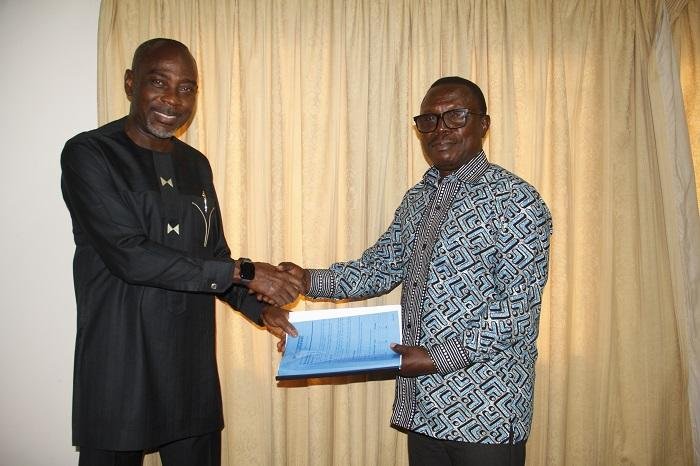
The Managing Director of the New Times Corporation (NTC), Mr Martin Adu Owusu, has officially proceeded on leave prior to early retirement.
Having served the Corporation for 29 years, Mr Owusu’s decision was precipitated on health grounds.
The Board Chairman of the NTC, Professor Kwamena Kwansah-Aidoo, made the announcement on Monday during a staff durbar.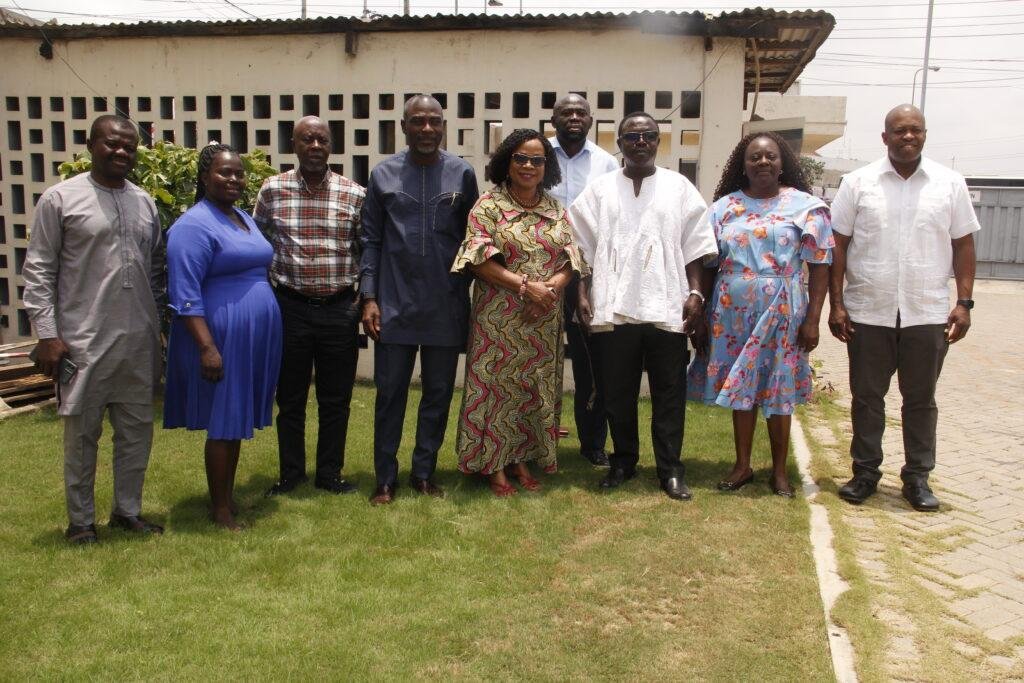
In his absence, an Interim Management Committee (IMC) has been set up to be chaired by a board member, Mr Kwesi Adjei Kersi, and supported by Dr Charity Binka, also a board member.
Representing management on the committee are the editors of The Ghanaian Times and The Spectator newspapers, Alhaji Abdul-Rahaman, and Mrs Georgina Naa-Maku Quaittoo.
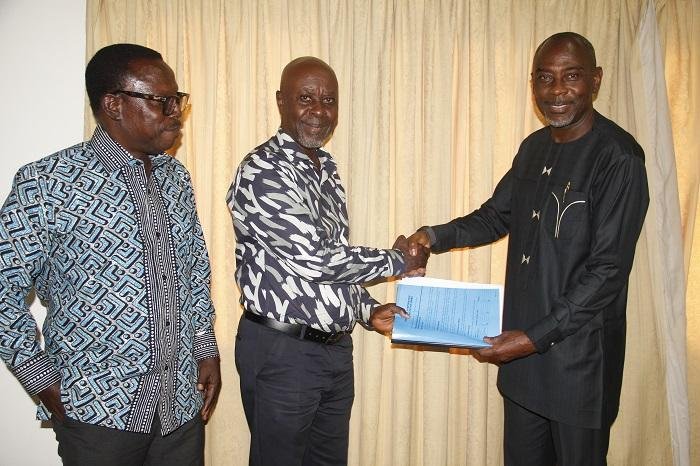
They are joined by the Human Resource and Administrative Manager, Mrs Agnes Nketia.
Their mandate is to oversee the day-to-day running of the Corporation until the NMC appoints a substantive Managing Director.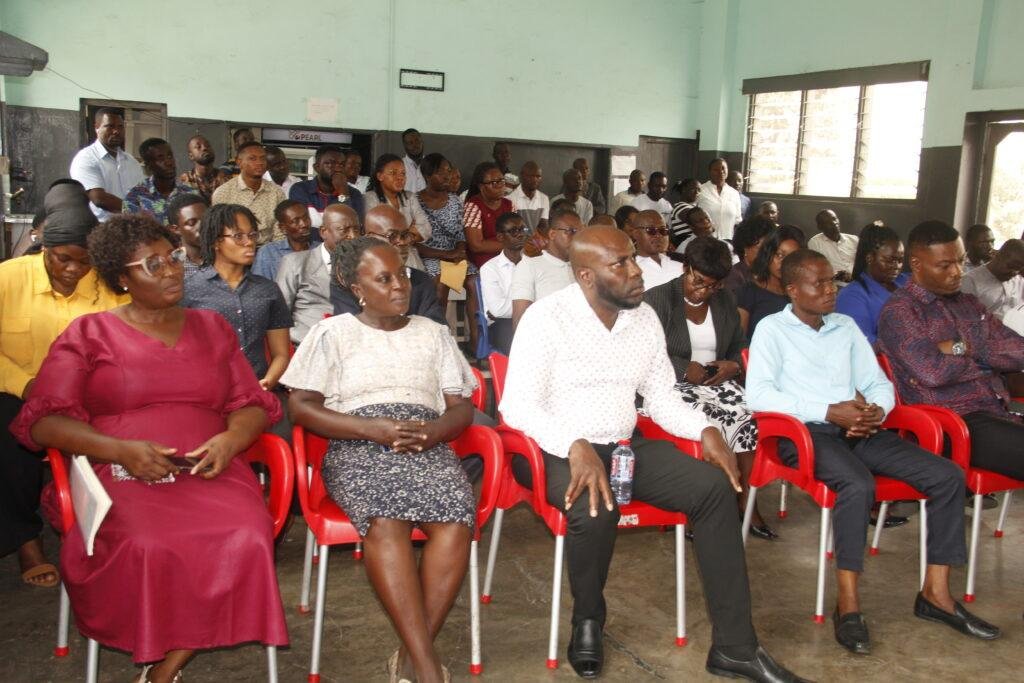
Professor Kwansah-Aidoo commended Mr Owusu for his 29 years of service, describing his contribution as invaluable to the growth of the Corporation.
Mr Adu Owusu, in an emotional farewell, thanked the staff for the support he has enjoyed and asked them to work hard to improve the fortunes of the corporation.
Following the announcement, Mr Adu Owusu officially handed over the administration and operation of the NTC to the IMC at a brief ceremony on Wednesday.
The Chairman of the IMC, Mr Kwesi Adjei Kersi, called for unity and cooperation among the staff and members of the committee, insisting that “unity and cooperation are crucial ingredients needed for the survival and progress of the Corporation.”
Mr Kersi urged staff to work in close cooperation with the committee to overcome the challenges facing the NTC.
He stressed that without unity and teamwork, the organisation would falter.
Mr Kersi noted that the committee’s immediate focus would be to stabilise the company, strengthen accountability, and chart a path toward growth.
Present at the ceremony were the Board Chairman, Professor Kwamena Kwansah-Aidoo, the outgoing Managing Director, Mr Martin Adu-Owusu, the Editors of The Ghanaian Times and The Spectator Alhaji Salifu Abdul-Rahman and Mrs Georgina Naa-Maku Quaittoo respectively, and the Human Resource and Administrative Manager, Mrs Agnes Nketia.
By Linda Abrefi Wadie & Esinam Jemima Kuatsinu
Join our WhatsApp Channel now!
https://whatsapp.com/channel/0029VbBElzjInlqHhl1aTU27
News
Oguaa goes gay with Fetu Afahye
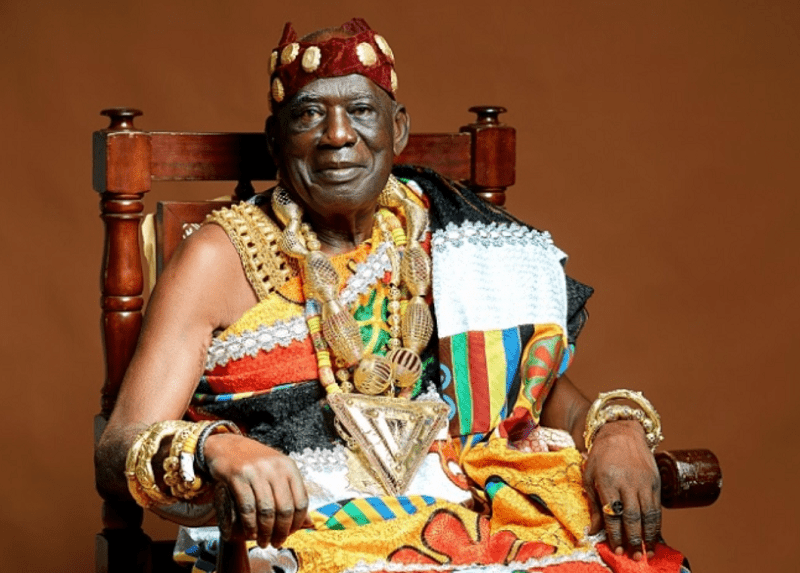
The ancient city of Cape Coast, one of Ghana’s historical cities, witnessed a showcase of the rich cultural heritage of the Oguaa people with an exciting, colourful, and traditional event to mark the celebration of the 61st annual Fetu Afahye.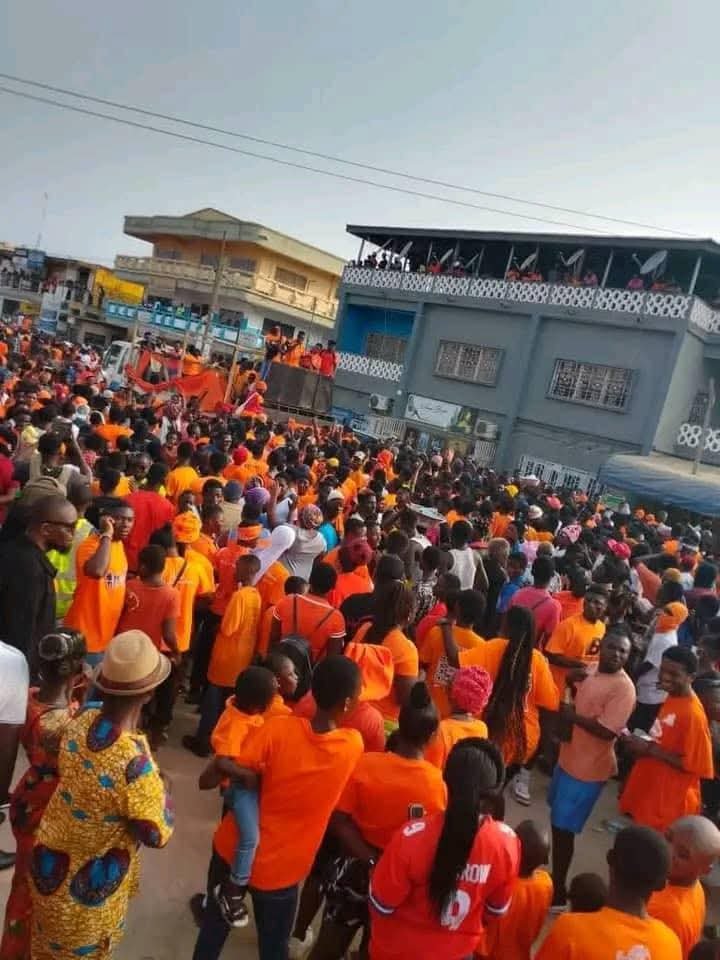
Themed “Innovate to elevate: Harnessing the creative economy for sustainable growth”, the festival featured a vibrant lineup of events, interspersed with several cultural performances showcasing the traditions which depict the traditional, historical and ancestral heritage of the land.
It witnessed a colourful procession of chiefs and various Asafo companies from the Mfantsipim School junction through the principal streets of the town to the Jubilee Park, accompanied by drumming and traditional dances.
The chiefs and members of the asafo companies were adorned in regal attire symbolising the pride and unity of the community.
Fetu Afahye demonstrates Oguaa’s resilience, unity, and cultural pride as the town welcomed indigenes both within and outside, as well as people from far and near, desirous of participating in the festival.
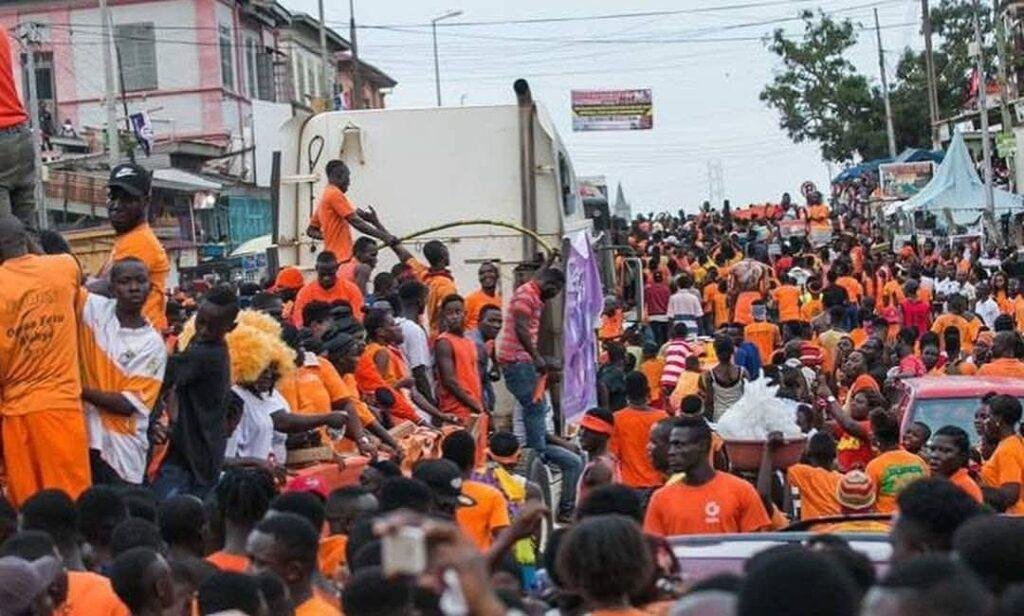
Various public spaces, including eateries and pubs, attracted patrons, and streets within the town witnessed bustling events with music blaring from the loudspeakers that had been placed by the roadside.
Bakatue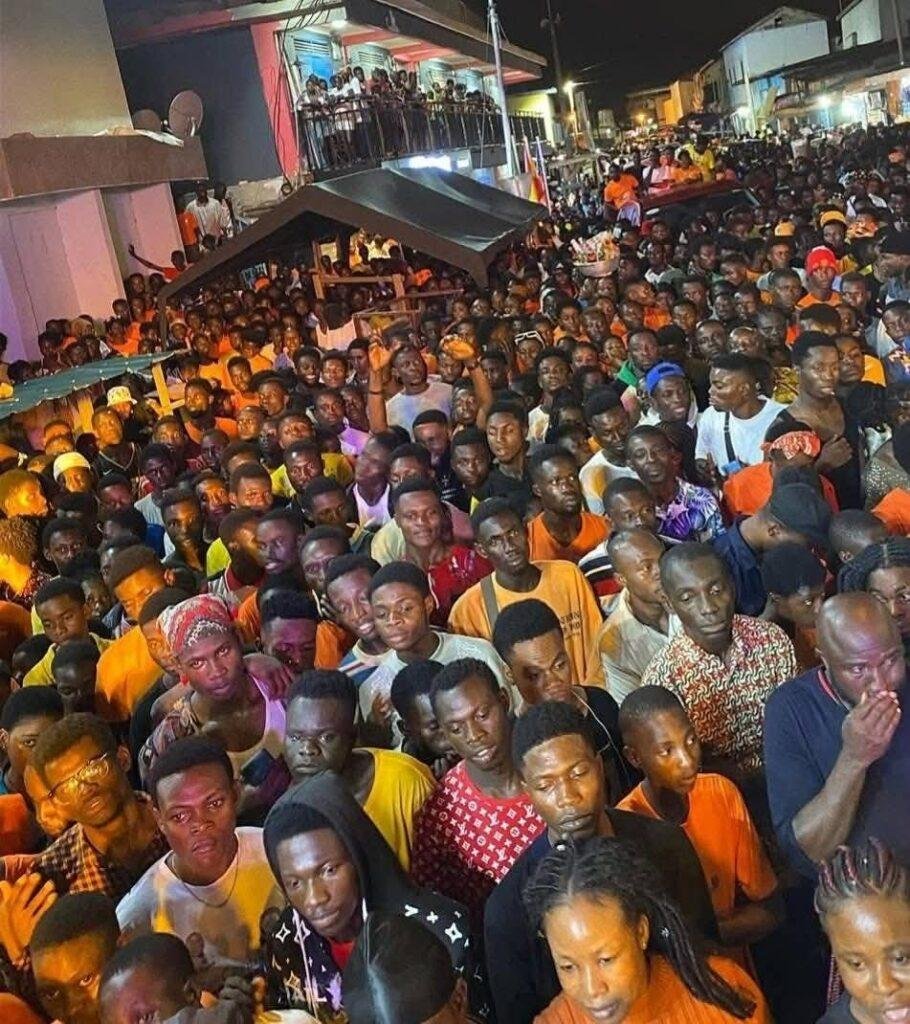
Prior to the durbar was the Bakatue regatta, a canoe race on the Fosu Lagoon, organised by ATL, a campus-based radio station located within the University of Cape Coast (UCC) in collaboration with the Oguaa Traditional Council.
The event saw a thrilling spectacle as the three Asafo companies, Nkum No. 4, Bentsir No. 1, and Anaafo No. 2, battled aggressively on the Fosu Lagoon. Nkum No. 4 earned nine points to clinch the trophy, medals, and a cash prize. They were followed by Anaafo No. 2 with five points, while Bentsir No. 1 finished third with four points.
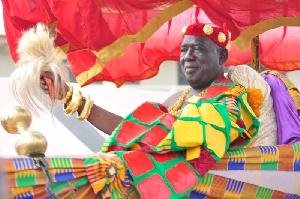
Orange Friday
Friday witnessed what has come to be known as the biggest street carnival in Ghana, known as ‘Orange Friday.’
It drew hundreds of people across the country. Clad in orange attires, the patrons gathered and moved through the streets of the town, creating a gridlock.
The Paramount Chief of the Oguaa Traditional Area, Osaberimba Kwesi Atta II, at the durbar of chiefs to climax the festival acknowledged the unifying factor in relation to culture among Africans and stated the need for Africans to take their destinies into their own hands.
He explained that festivals such as Fetu Afahye offer an opportunity for Africans to remind themselves of the future by working hard and embrace the future in order not to be taken by events.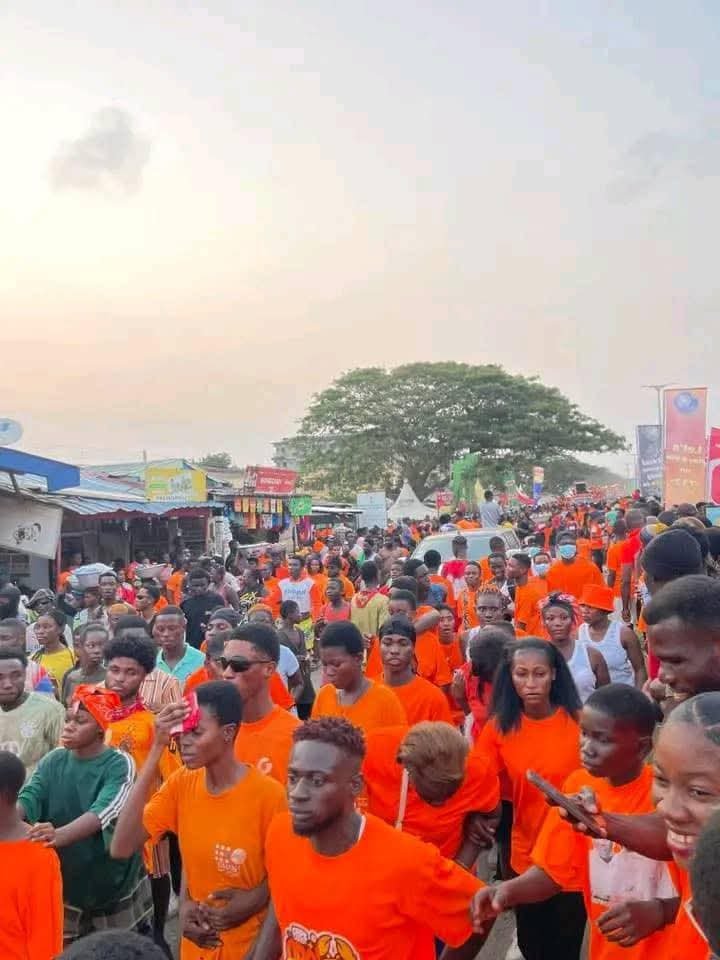
The Vice President, Prof. Naana Jane Opoku-Agyemang, in a speech read on her behalf, noted that the festival was far more than a ritual or an annual duty, saying, “It is an affirmation of an identity, a homecoming and a powerful testimony to the wisdom and fortitude of our forebears”.
In his remarks, the Special Guest of Honour, the Olu of Warri State in Nigeria, Ogiame Atuwatse III, indicated that, the only thing holding Africans back was Africans themselves, which he said, was in the area of an African identity, and acting on that identity.
From David O. Yarboi-Tetteh, Cape Coast
Join our WhatsApp Channel now!
https://whatsapp.com/channel/0029VbBElzjInlqHhl1aTU27






